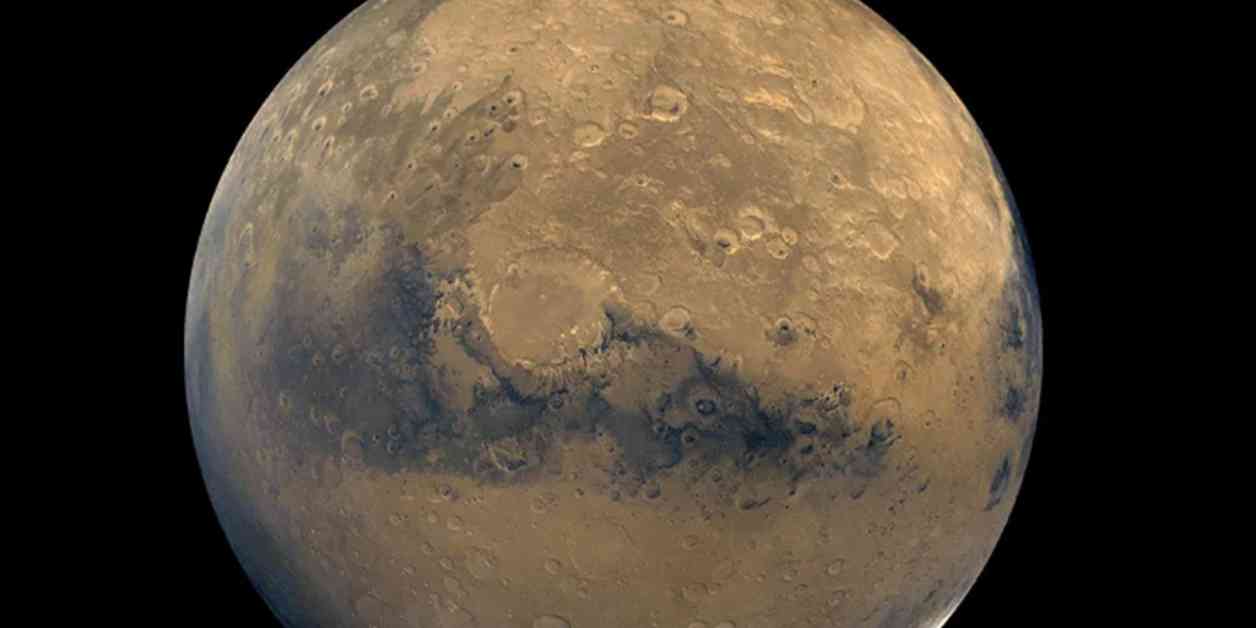Dark Matter: The Mysterious Force Shaping Mars’ Orbit
A recent study has proposed an intriguing theory that dark matter may be causing a noticeable wobble in Mars’ orbit. Published in the respected scientific journal Physical Review, the study suggests that this wobble could be attributed to the presence of microscopic, or primordial, black holes within the dark matter realm.
Unlike the more commonly known astrophysical black holes, primordial black holes are believed to have formed in the immediate aftermath of the Big Bang. These black holes, though minuscule in size, could possess a mass thousands of times greater than that of our Sun, making them a significant component of dark matter.
The concept of dark matter, first proposed by Swiss astronomer Fritz Zwicky in the 1930s, remains a mysterious and elusive force in the universe. Dark matter is invisible to the naked eye and does not emit any light or energy, yet it accounts for approximately a quarter of the total mass in the universe. Scientists have inferred the existence of dark matter through its gravitational effects on visible matter.
The new study, titled “Close encounters of the primordial kind,” was conducted by a team of physicists from the Massachusetts Institute of Technology (MIT). Through a simulation of Mars’ orbit, the researchers demonstrated how the presence of primordial black holes, as part of dark matter, could potentially disrupt the planet’s trajectory.
According to the study, these primordial black holes would periodically cause a slight wobble in Mars’ orbit as they pass through the solar system. This phenomenon, occurring roughly once per decade, could be detected by astronomers using advanced telemetry techniques to measure the distances between celestial bodies.
“We’re leveraging the sophisticated technology available to us in space to investigate this subtle effect,” explained co-author and physics professor David Kaiser. “If we detect this wobble, it would provide compelling evidence in support of the idea that dark matter consists of primordial black holes that have been traversing the universe since its inception.”
While the concept of dark matter and its potential influence on celestial bodies like Mars may seem abstract, researchers are continuously exploring new avenues to understand this enigmatic force. By investigating the role of primordial black holes in dark matter, scientists hope to shed light on the fundamental mysteries of the universe.
The Impact of Dark Matter on Mars’ Orbit
Mars, often referred to as the “Red Planet,” has long captivated astronomers and space enthusiasts alike. Its orbit around the Sun is relatively stable, with periodic variations attributed to known gravitational influences from other planets in the solar system.
However, the recent study suggests that an additional factor, dark matter in the form of primordial black holes, could be contributing to subtle disturbances in Mars’ orbit. These disturbances, characterized by a periodic wobble, may provide new insights into the dynamics of our neighboring planet.
By incorporating the presence of primordial black holes into their simulation of Mars’ orbit, the researchers were able to observe how these elusive entities could interact with the planet’s gravitational field. The resulting wobble, though subtle, could have far-reaching implications for our understanding of dark matter and its impact on celestial bodies.
Challenges and Future Directions
As with any groundbreaking scientific theory, the proposal of dark matter-induced wobbles in Mars’ orbit is met with skepticism and challenges. Detecting such subtle effects requires precise measurements and advanced technology, posing a significant obstacle for astronomers seeking to validate this hypothesis.
Despite the complexities involved in studying dark matter and its potential influence on Mars, researchers remain optimistic about the prospects of further exploration. Advances in telescopic capabilities and data analysis techniques offer new avenues for investigating the mysteries of dark matter and its role in shaping the universe.
Moving forward, the scientific community will continue to conduct rigorous investigations and simulations to test the validity of the dark matter-induced wobbles in Mars’ orbit. By leveraging cutting-edge technology and collaborative research efforts, scientists aim to unravel the enigma of dark matter and its profound implications for our understanding of the cosmos.
In conclusion, the study findings suggesting a connection between dark matter and Mars’ orbit represent a significant step forward in our quest to comprehend the mysteries of the universe. Through innovative research and interdisciplinary collaboration, scientists are poised to unlock the secrets of dark matter and its impact on the celestial bodies that populate our vast cosmos.




